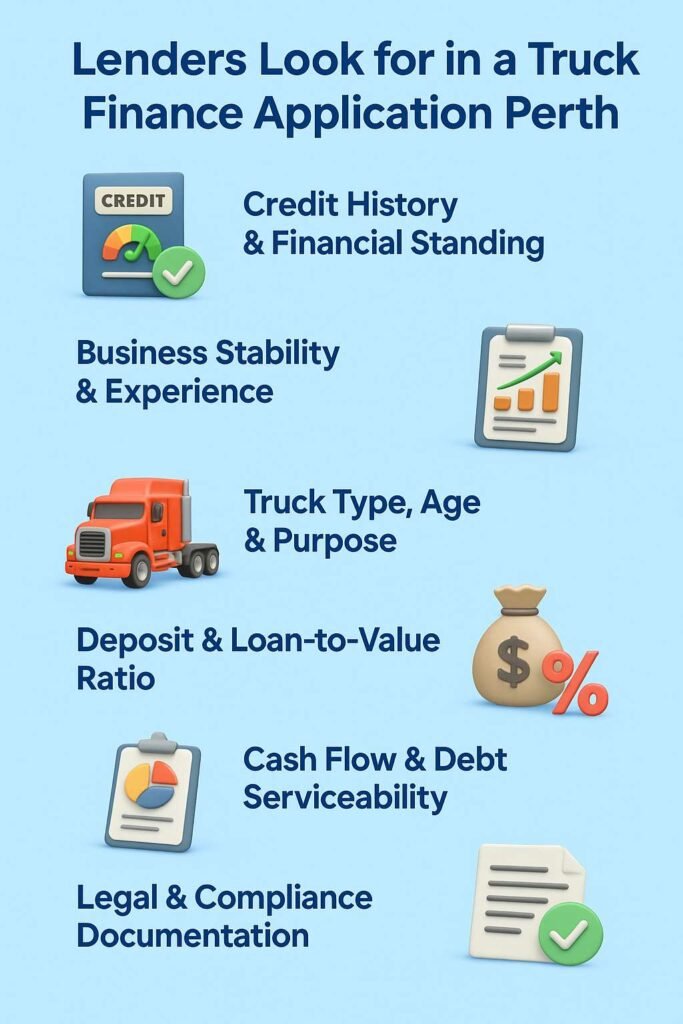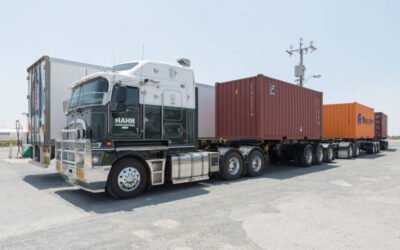Securing truck finance in Perth requires more than simply submitting an application form. Lenders apply strict assessment criteria to determine whether applicants represent a reliable, low-risk investment. Understanding what lenders look for when evaluating a truck finance application can help businesses and owner-operators improve their chances of approval and secure more favourable terms.
Credit History & Financial Standing
One of the first factors lenders assess is credit history. A strong credit record demonstrates the ability to manage debt responsibly and reassures lenders of the applicant’s reliability. Applicants with a history of late payments or defaults may face higher interest rates or reduced loan options. Lenders will also review business and personal financial statements, including income, cash flow, and liabilities, to assess repayment capacity.
Business Stability & Experience
For businesses, lenders want to see a proven operational history. Companies that have been trading successfully for several years demonstrate stability and reduced risk. Start-ups may need to provide additional documentation, such as detailed business plans, future contracts, or projected revenue, to prove viability. Industry experience, particularly in the transport and logistics sector, adds further weight to an application.
Truck Type, Age & Purpose
The vehicle itself is an important consideration. Newer trucks are generally easier to finance as they hold more value and pose less maintenance risk. Lenders will also look at the purpose of the truck—whether it is for long-haul freight, construction, or local deliveries. Vehicles that align closely with the applicant’s business operations are viewed more favourably, as they are directly tied to revenue generation.
Deposit & Loan-to-Value Ratio
A deposit reduces the lender’s exposure and demonstrates the applicant’s commitment. Generally, the higher the deposit, the better the finance terms offered. Lenders will also evaluate the loan-to-value ratio (LVR), which compares the loan amount to the truck’s value. A lower LVR increases approval chances and reduces borrowing costs over time.
Cash Flow & Debt Serviceability
Lenders assess whether the applicant’s income and business revenue are sufficient to meet monthly repayments alongside existing debts. Demonstrating strong cash flow management is crucial, particularly for businesses with seasonal income variations. Applicants may also be asked to provide bank statements and tax returns to support their application.

Legal & Compliance Documentation
Applicants should be prepared with the necessary compliance paperwork, including proof of identity, Australian Business Number (ABN), and any relevant licences. For businesses, incorporation documents and GST registration are often required. Ensuring that all documentation is accurate and up to date helps avoid unnecessary delays in the approval process.
Comparing Finance Options
It is also worth noting that requirements can vary between lenders. Traditional banks may impose stricter conditions, while specialist truck finance providers often offer more flexible terms tailored to transport operators. Exploring multiple options ensures that applicants can secure finance that matches both their needs and their repayment capacity.
The Role of Professional Guidance
Many businesses seek assistance from finance brokers who understand the complexities of Truck Financing Perth and can negotiate with multiple lenders on their behalf. This professional support can improve approval rates and secure more competitive finance packages.
For businesses expanding their fleets or individuals considering alternatives, exploring other lending products such as Car Financing Perth can provide additional insights into how lenders apply similar assessment criteria across different asset finance products.





0 Comments